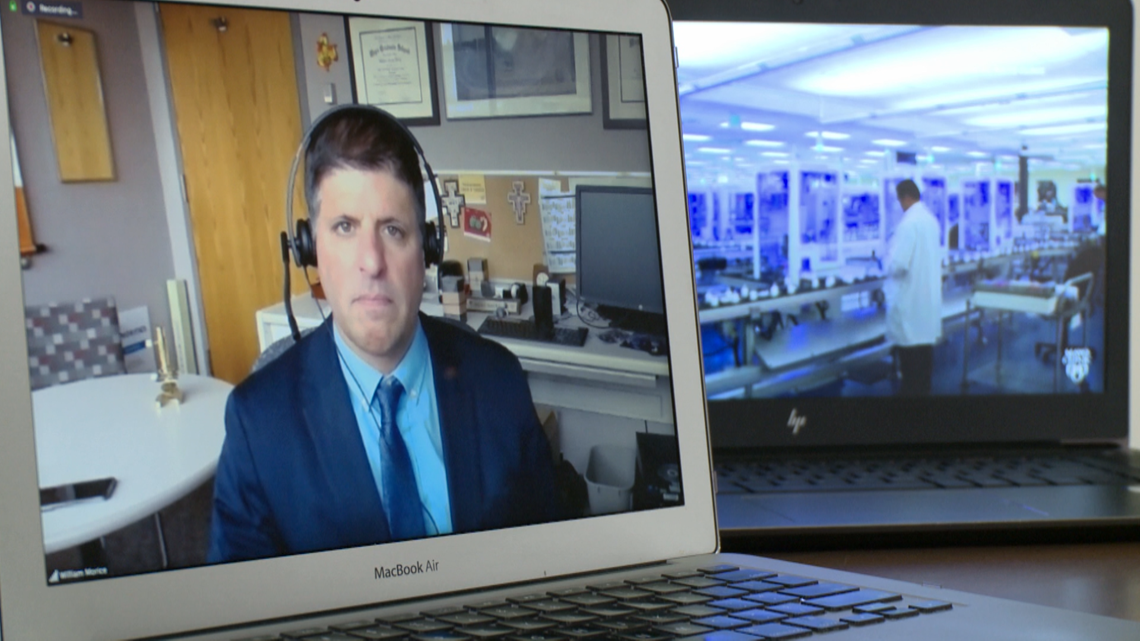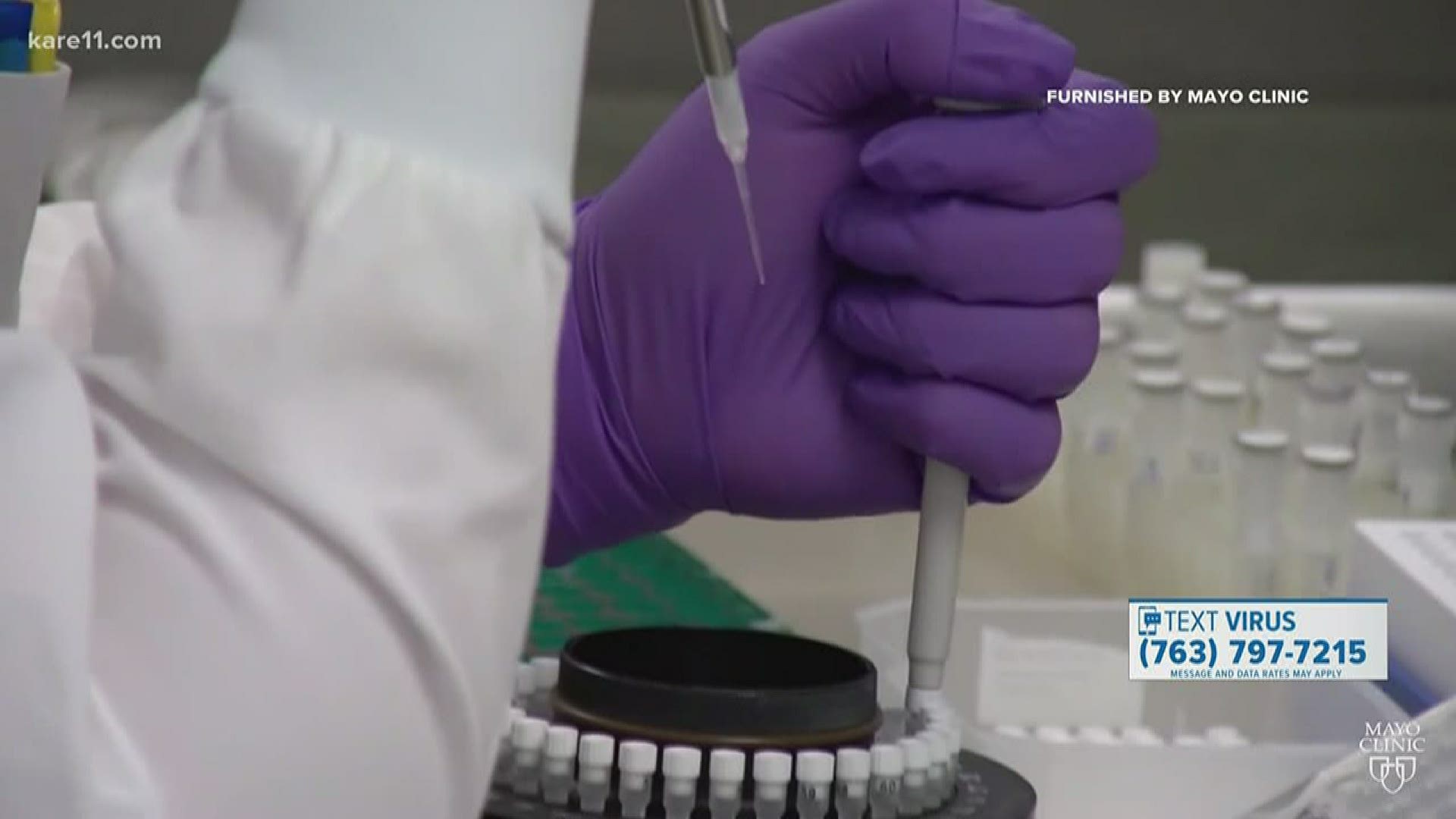ROCHESTER, Minnesota — Minnesota Governor Tim Walz says expanded testing is the key to getting the state running again and lifting restrictions. Mayo Clinic is at the forefront of developing these kinds of tests.
Last week, Mayo Clinic launched a serologic test (also called an antibody test) which is used to find out who has recovered and might have some immunity to the novel coronavirus that causes COVID-19.
They're now able to make it available to more hospitals across the country through Mayo Clinic Laboratories.
"We've been focused very much in the parts of the country that have been hit hardest by this... so the South and in the Northeast," said Dr. Bill Morice, president of Mayo Clinic Laboratories and chair of Laboratory Medicine and Pathology at Mayo Clinic.
So far, Mayo Clinic has done about 100 serologic tests but testing is now ramping up.


"We do have a capacity to do 10,000 tests per day and we're looking to double, even triple that or even more in the coming weeks," Dr. Morice said.
According to Dr. Morice, they're focusing first on testing those on the front lines who may have been exposed to the virus and now have some immunity.
"The other will be to really identify people who have been exposed, developed antibodies, and actually can donate their plasma to treat others who are really suffering with COVID disease," Dr. Morice said.
For example, an older Maple Grove couple with COVID-19 is part of the Mayo Clinic convalescent plasma study through North Memorial Health. But the couple's family says there are not enough or sufficient quality plasma donations in order to move forward with treatment. Qualified donors are those who have tested positive for COVID-19 and have fully recovered. More testing would likely lead to more plasma donations.
Expanded testing would also help reopen the economy. To get to that point, Governor Walz said he hopes to do 40,000 tests a week or about 5,000 per day.
"I think it's definitely doable... As I mentioned, we can do 10,000 tests a day right now," Dr. Morice said. "It will take a real concerted effort though because just as Mayo Clinic and other hospitals in the state are looking to grow this testing, every other hospital is in the same exact situation. So we need to be more coordinated, working with the federal government to understand how they can help increase supplies due to testing."
Eventually, Dr. Morice said they want to test as many people as possible.
"Both to understand how the disease is spread and then once we get to a vaccine, to understand who is responding and who is not to the vaccine," Dr. Morice said.
Testing is being performed 24 hours a day and the turnaround time is expected to be as close as possible to 24 hours after receipt of the sample.
The serologic test is meant for detecting antibodies but not for recent or active infections. Mayo Clinic's molecular test is used for that.
"As we think about safely reopening society... how do we put all those pieces of the puzzle together? Molecular and serologic testing are both going to be critically important," Dr. Morice said.
Mayo Clinic is also leading a national plasma program to treat COVID-19 patients. There is a push right now to identify potential donors and get those people scheduled to donate.
If you are a recovered COVID-19 patient, your plasma donation could help someone currently fighting COVID-19.
Those who may be able to donate at Mayo can click, here, or contact convalescent.plasma@mayo.edu.
Those who can donate elsewhere, can find more info through the American Red Cross.
KARE 11’s coverage of the coronavirus is rooted in Facts, not Fear. Visit kare11.com/coronavirus for comprehensive coverage, find out what you need to know about the Midwest specifically, learn more about the symptoms, and see what companies in Minnesota are hiring. Have a question? Text it to us at 763-797-7215. And get the latest coronavirus updates sent right to your inbox every morning. Subscribe to the KARE 11 Sunrise newsletter here. Help local families in need: www.kare11.com/give11.
The state of Minnesota has set up a hotline for general questions about coronavirus at 651-201-3920 or 1-800-657-3903, available 7 a.m. to 7 p.m.

